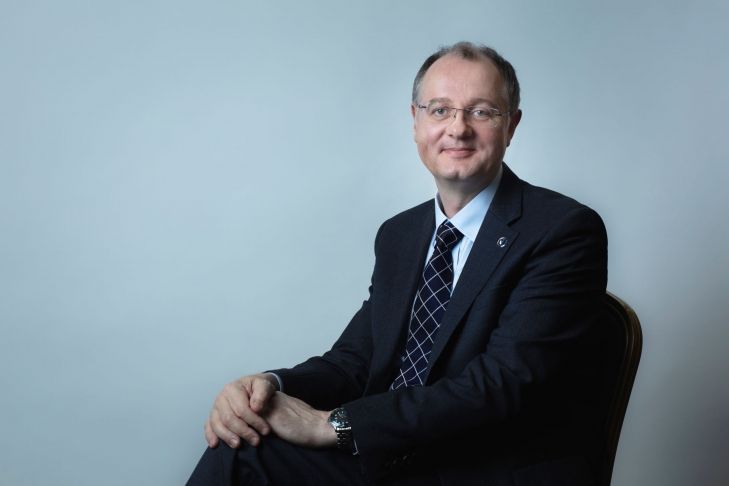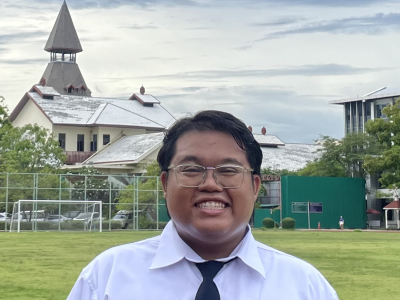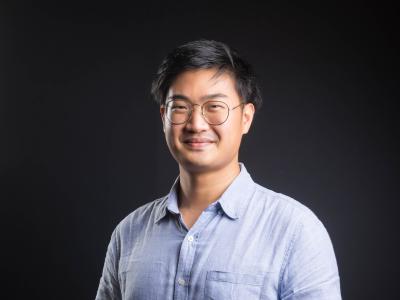
Everything boils down to the quality of an idea and the thinking behind it, but constant conversation with funders helps ensure research gets done, says SMU Provost Professor Timothy Clark.
By Alvin Lee
SMU Office of Research & Tech Transfer – A good idea makes all the difference. Microsoft CEO Satya Nadella professes to ignore startup valuations because “what matters is the quality of ideas”. Alfred Nobel: “If I have a thousand ideas and only one turns out to be good, I am satisfied.” American businessman Harvey Firestone, founder of the Firestone Tire and Rubber Company: “Capital isn’t that important in business. What is important is ideas.”
For new Singapore Management University (SMU) Provost Professor Timothy Clark, the quality of an idea is core to academic excellence.
“As a University, we have to generate big ideas which have high quality thinking behind them,” Professor Clark told the Office of Research and Tech Transfer. Be they purely academic or to address practical concerns, the ideas that make a difference need to be on what he calls “the cutting edge” of research and thinking.
“To be at that cutting edge you've got to be constantly updating your knowledge by reading the latest publications in your area, attending conferences so that you get feedback on your ideas and know where research and thinking is going,” he exhorted. "You've got to be sending your papers for people to review before submission, and you've got to be actively reviewing for journals. Where you can, you've also got to be sitting on panels reviewing research grant proposals.
“To be at the cutting edge you've got to really know where the discipline and where your particular area is going.”
Speaking the funder’s language
“Understand what the funders’ agenda are,” Professor Clark advised. “What is it that they want to fund, and what is exciting to them? You need to be having conversations with funders.” He added:
“You sit on panels and you talk to funders and they tell you what their thinking is, and they ask you what your thinking is and sometimes you can influence it. You have a dialogue and you learn that they're likely to have a call in this area, in 18 months they're thinking about a call in another area and so forth. You can then prepare yourself for those calls. So you need to be actively engaged with reviewing for funding bodies.
“The reviewing tells you several things. One, it tells you the kinds of proposals that are being developed at this moment in time. Secondly, it gives you a sense of quality. In reviewing something you're making judgments about that quality and hopefully when you see something really good, you can start to learn lessons from that and absorb it.
“You start to develop a sense of what the funder thinks is a high quality proposal and you can start to tune not just your reviews to that but hopefully write proposals that will get to that threshold as well.”
The third part of the research grant puzzle involves working with the right collaborators because “funders do look at the quality of the collaboration”. Professor Clark added that a good team would likely improve an idea and even help write a compelling proposal.
“So if you've not got that sort of experience at the moment then I think what early-career researchers need is proper mentoring from people who can help them facilitate the generation of good ideas and help them with the reviewing and introducing them so that they can do reviewing for funders and also help develop teams.”
How ideas flow
Referring to his own research on management gurus whose objective is to “generate real enthusiasm about a particular idea, or a way to run an organisation”, Professor Clark pointed out a gap between an idea and its implementation within an organisation.
“When people leave an event,” he elaborated, referring to lectures by management gurus, “how enthused are they really about an idea? Do they take it back into the organisation and sell it to people and say, ‘We need to do this’? The assumption is that a large proportion of people who attend must have done that but there was no empirical evidence for that.”
To address this gap, Professor Clark is working on a monograph to link research done with previous co-authors, David Greatbatch at Durham University and Stefan Heusinkveld at Vrije Universiteit Amsterdam. He explained:
“It takes the research that we did on the guru-audience interaction and tries to really understand the nature of the audience. Rather than treating the audience as a homogenous entity, it seeks to break the audience down into different groups and then understand… how those ideas translate and move into organisations by audience members.”
A family man
As the University’s chief academic officer, Professor Clark’s expertise on the dissemination of ideas puts him in an ideal position to put into practice many years of research and tackle SMU’s five newly identified societal challenge areas. The former Chair and President of the British Academy of Management brings more than two decades of stellar research credentials from his native UK, and is currently hard at work on achieving Vision 2025 and implementing recommendations from the Blue Ribbon Commission on Undergraduate Programmes.
Despite his duties, Professor Clark is building new ties beyond the professional sphere. The avid cyclist has already contacted a local cycling group and ridden in the OCBC Cycling 2019 event. He has also caught a film – The Guilty, the Danish submission for Best Foreign Film at the 91st Academy Awards – at The Projector, the “not your average cinema” that revived the historic Golden Theatre at Golden Mile Tower.
For the self-described family man, being separated from wife Penny, son Max and daughter India is tough. He also misses his dog – Charlie.
“I've always been a keen cyclist, but I actually was a very keen golfer. But when my children came along I realised I couldn't spend three and a half hours playing golf at the weekend, I needed to be an active dad and attend to their needs. So I took up cycling as a way of just going out for an hour or two and it's a way of keeping fit, and then it became quite a passion really.”
What, then, would a perfect day be for Timothy Clark?
“The first thing would be having a family breakfast and sitting round a table having a good conversation. Then, take the dog for a family walk at the seaside, followed by a bicycle ride with a few friends. And then finishing off the day by going to see a film – that would be a perfect day.”
Back to Research@SMU May 2019 Issue
Image credit:


